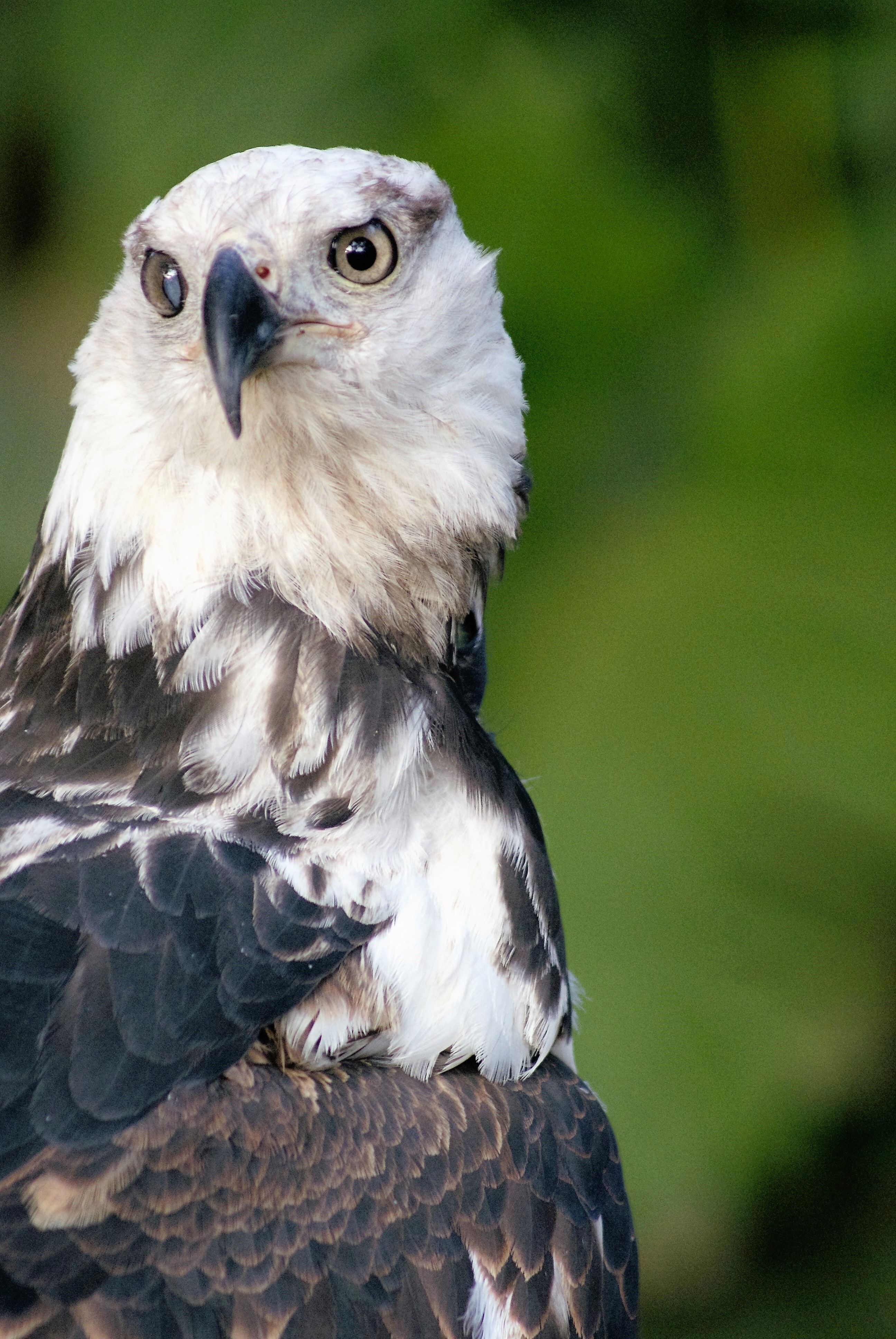Rehabilitation of Raptors in Kenya
By Zoe Gibbs
|
Juvenile African fish eagle with cataract in right eye. Photo credit: Zoe Gibbs. |
There was a time when Kenya was a haven for many bird species, attracting ornithologists from around the world. Now many species, especially birds of prey, are in a decline and efforts are on to conserve them. The Bearded Vulture, or Lammergier, an old-world vulture once freely soared over Kenya’s highlands in search of bones, its primary food. However, longstanding persecution due to unfounded myths, poisoning, and habitat loss has resulted in one sole captive survivor in Kenya. The Raptor Rehabilitation Trust of Kenya (RRK) recently teamed up with the Peregrine Fund, National Museums of Kenya and Nature Kenya, to start up the Bearded Vulture Conservation Project (BVCK), under the aegis of the Kenyan Wildlife Service (KWS).
RRK was formed to rehabilitate injured raptors and raise orphaned birds with the help of public participation and continuing campaign about the plight of raptors in Kenya. Rehabilitators compliment the veterinary care and conduct physiotherapy for birds during their recovery. Spacious flight chambers as well as falconry techniques are used to enhance the speed and conditioning of the birds. The aim is to protect raptors from trapping, poisoning, stop their illegal removal from nests and provide education to limit public persecution.
When specialist care is needed for the avian patients, help has come from around the world. A juvenile African fish eagle ‘beaten’ down by an adult pair as it flew into their territory on Lake Baringo in northern Kenya was rescued by locals who saw the bird plummet to the ground. The eagle was housed in a small enclosure made by the villagers and fed fish till we air-lifted it to our facility in Nairobi. Both fractured wings were fixed surgically and became functional once again. Over the following months we began the eagle’s flight training, only to realise the bird had poor vision due to early start of a cataract and uveitis in the right eye. Our pleas for expert advice led to the visit of Dr. Esson, a veterinary ophthalmologist from the U.S. who examined the bird and advised us on medication to cure the uveitis. The eagle now awaits a return visit from Dr. Esson to perform the cataract operation.
Too many raptors are being kept poorly and illegally in captivity. Recently, a juvenile augur buzzard was stolen from its nest and attempted to be raised on an inadequate diet of soya bean. This bird had her beak, talons, tail and wings clipped. Tied to the front of a ‘boda-boda,’ a local motorcycle in the township of Kakamega in northwestern Kenya, it was one sorry apparition of a buzzard when we rescued it. With good nutrition the bird will regain necessary bone density and essential condition. Already the wings and tail feathers have begun to re-grow and the beak and talons are back to normal.
Schools are an important platform for RRK’s raptor conservation programs. An awareness and appreciation for birds should be nurtured from a young age in order to make a difference to the future. The children get to ask questions and view birds that are not able to be returned to the wild.
For more information please visit http://www.raptorrehabkenya.org
Zoe Gibbs works at the Raptor Rehabilitation Trust in Kenya.
